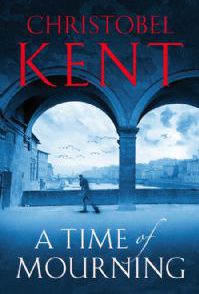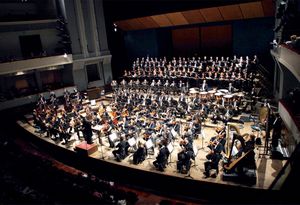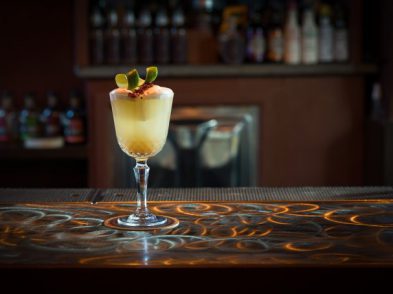Sarah Dunant is an award-winning novelist, broadcaster, critic and patron of the Orange Prize, the prestigious literary award for female authors. She has written several thrillers, two of which are being adapted as films, and as creator of private investigator Hannah Wolfe was awarded the Crime Writers’ Association Macallan Silver Dagger for Fiction. One of her most recent novels, The Birth of Venus, is set in Florence at the time of Lorenzo de’ Medici and relates the story of Alessandra, the artistic daughter of a wealthy Florentine cloth merchant. Meticulously researched, it is also a vivid and accurate account of life in Florence in the fifteenth century. The writer divides her time between London and Florence. While in town recently to work on her latest novel, she spoke to The Florentine’s Helen Glave.
You are patron of the Orange Prize for Fiction. What does this involve?
Nowadays very little. But I was quite involved in the formation of the prize, which is now over 10 years old. It arose from a discussion as to whether women were being treated properly by the literary establishment, given that huge numbers of readers are women. They clearly were not. And so a group of us got together and said, well how do we draw attention to this in a way that doesn’t sound as if we’re whining? We decided to make our point with a sense of humour. So we said ‘Size matters!’ and we sought funding for a prize for women writers that was bigger, in financial terms, than the Booker. It is a substantial prize and it has made a huge difference. It has a very high profile.
Your writing covers various genres, but as the creator of Hannah Wolfe and a winner of the Silver Dagger, do you consider yourself first and foremost a crime writer?
Actually, I consider my crime-writing years as my apprenticeship. Writing about crime gave me excellent training in the most important lesson for any writer of fiction: how to make the reader want to turn the page.
How did your book The Birth of Venus come about?
I didn’t want to write any more thrillers, and I was looking around for other ideas. I already had a special affinity with Florence. It is a city full of energy, full of art, full of history, which I love, but also full of modern life. It never feels like a museum. So I began to study more about Florence and I was completely knocked out by what an extraordinary city this must have been in the cauldron of the Renaissance. I thought, wouldn’t it be amazing to read a book which makes you feel the shock of the ‘new’; one that makes you think, ‘This is the centre of the Universe’.
And then something really interesting happened. I was here with my daughters, and as I walked through the streets with them it suddenly struck me that in everything I had read of the Renaissance I had not come across the single name of a woman. The writers, the philosophers, the politicians, the religious thinkers, the preachers, the artists—all of them were men. And I started asking, ‘Where were the women?’ And that was where the germ of the idea for Alessandra came from. I wondered what it would be like to be a smart and feisty 13-year-old in Renaissance Florence. I wondered what her trajectory would be if she wanted to paint and had genuine talent. I just couldn’t believe that all the talent had been given only to men. I mean, there are some things that have stayed the same down the ages and I think that smart women is probably one of them!
A book of intrigue set in Renaissance Florence: what kind of reader did you have in mind?
At the beginning I had no idea. But I had studied history at university and I knew that there were a lot of people out there eager to learn their history without reading history books. But in the last 40 years there have been enormous changes in the ways we study history. Through all the work that’s been done by feminist historians, for example, we know a huge amount more than we did before. That was the challenge: to write a novel that was as truthful and as accurate as possible about what it was like to live here—the food, the clothing, the politics, the culture—but at the same time to make it completely effortless, to make history as relevant and immediate as the present.
What are you working on now?
I’m writing a novel set in a Benedictine convent in Ferrara in the middle of the sixteenth century. And I suppose that’s for two reasons. The first is that, having written about Florence and about Venice in In the Company of the Courtesan, I wanted to write again about Italy, but about a smaller city. I chose Ferrara because it’s beautiful and it has a very English climate.
The second reason is that I’d started to wonder what happened to Italian women in the mediaeval period and my research showed me that 50 percent ended up in convents. 50 percent! That’s just because the dowry system was so prohibitive for many families.
You have homes in Florence and London. What do you miss about London that you can’t find in Florence and vice versa?
I’m slightly in trouble here because I love more about Florence than I love about London. But that’s because I’ve lived in London all my life and I have that slightly jaded appetite of the old lover! But if I was forced to tell you why I was still married to the same city, London, I’d tell you that I really love its multiculturalism. I can walk down my local high street and hear 15 languages and sometimes it’s rough and sometimes you’re not sure if the next wave of immigration is going to bring with it a lot of social unrest, but the sense of being in an organism that’s always moving and always changing is fantastic.
Florence is changing in that respect.
Yes, seven years ago I would have said ‘I love Florence but it’s awfully homogenous’. Now that’s changed, and I can see it can be scary sometimes. I can see that one can worry about the essence of the city getting lost. But then it’s not just Florence; it’s happening everywhere. Global capitalism means that frontiers are down and it’s not even a political situation; it’s even more powerful because it’s economic. But there’s one thing I’ve learnt from writing about the past: you can’t stop change. There’s wonder and horror but there’s not much you can do about it. And then, Florence has always been open to the new. Think what would have happened if in 1428 Florentines had said, ‘We don’t like all this new stuff—we prefer Florence the way it is’. It doesn’t bear thinking about.






